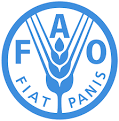Job Vacancy at Food and Agriculture Organization of the United Nations (FAO) – National Legal Specialist
Closure Date: 09/Jul/2021, 9:59:00 PM
Organizational Unit : FRSIL
Job Type: Non-staff opportunities
Type of Requisition : PSA (Personal Services Agreement)
Grade Level : N/A
Primary Location: Sierra Leone-Freetown
(adsbygoogle = window.adsbygoogle || []).push({});
FAO seeks gender, geographical and linguistic diversity in its staff and international consultants in order to best serve FAO Members in all regions.
- FAO is committed to achieving workforce diversity in terms of gender, nationality, background, and culture
- Qualified female applicants, qualified nationals of non-and under-represented member nations, and person with disabilities are encouraged to apply
- Everyone who works for FAO is required to adhere to the highest standards of integrity and professional conduct and to uphold our values. FAO has a zero-tolerance policy on conduct that is incompatible with the aims and objectives of the United Nations and FAO, including sexual exploitation and abuse, sexual harassment, abuse of authority and discrimination
- All selected candidates, therefore, will undergo rigorous reference and background checks
- All applications will be treated with the strictest confidentiality
- The incumbent may be re-assigned to different activities and/or duty stations depending on the evolving needs of the Organization
Organizational Setting
The Swedish International Development Cooperation Agency (Sida), the Food and Agriculture Organization of the United Nations (FAO) and the Economic Community of West African States (ECOWAS) are collaborating on a new 5-year project: Global Transformation of Forests for People and Climate: a focus on West Africa.
(adsbygoogle = window.adsbygoogle || []).push({});
The project is implemented by FAO in partnership with ECOWAS, with financial support from Sida, and is key to accompany the implementation of the ECOWAS Convergence Plan for the Sustainable Management and Use of Forest Ecosystems in West Africa , which was adopted in 2013. The Convergence Plan aims to mobilize political, institutional, financial and technical support to address transboundary forest issues across ECOWAS's 15 member states.
The project's objective is to strengthen decision-making on forests and land management across West Africa by improving knowledge of forest dynamics, strengthening legal forestry frameworks, and demonstrating and sharing the best community-based forest practices across the region. It is expected that sharing lessons learned and best practice will take place within the region as well as globally.
The project has three priority focus areas: Focus area 1: Knowledge of the state of forest ecosystem dynamics
Focus area 2: Forest and land related laws, policies and strategies at the sub-regional level; and
Focus area 3: Demonstration of community-based sustainable forest and land use practices and encouraging south-south cooperation
Specifically, Focus Area 2 seeks to support initially the development of four or five legal gap analyses, based on country needs that will contribute to sustainable forest management and to addressing transboundary threats to forest ecosystems in West Africa.
In the ECOWAS region, many member states identify weak forest sector governance and institutions, as well as a lack of consistency between laws and implementation across borders, as critical challenges to sustainably manage forests. The African Forest Forum (2014) highlights cross-border trade in West Africa as being essential for livelihoods in the region, yet unsustainable practices such as illegal trade of wildlife and forest products undermine the livelihood benefits that could otherwise be derived. This issue is particularly relevant at a sub-regional level as sawn timber, plywood and fuelwood are traded from the Guinean rainforest countries to Sahelian countries through both legal and illegal channels.
(adsbygoogle = window.adsbygoogle || []).push({});
The engagement of local communities in community-based forest management and forest-law enforcement varies across the sub-region but holds potential in addressing the drivers of deforestation including illegal logging and agricultural encroachment. Local communities' involvement, both in terms of proximity and interest, can help protect and conserve forest resources. Their natural proximity to the forest, deep knowledge of its systems and dynamics, and strong intra-community relationships - enhanced through a sense of ownership based on tenure security - are some of the likely factors for efficient and cost-effective protection of forest resources.
Often community involvement is limited by lack of legal forest tenure rights to access and manage forest resources - rights which if secured, would benefit both local livelihoods and forest management. At the same time, international, regional and sub-regional treaties and agreements that consider a human rights based approach to protect the environment, water, biodiversity, and forests are becoming a priority for legislators and national parliaments.
Cross-sectoral legal harmonization should reflect a balanced approach in promoting economic development objectives along with conservation of natural resources. Any legal arrangement, requires multi-sectoral coordination based on an articulated dialogue involving key stakeholders at multiple scales, and across borders.
During phase I, legal gap analyses will be conducted in four/five countries where forestry legislation is currently under revision or development, and where major transboundary concerns related to forest management can be tackled. In addition to those criteria, countries facing high deforestation rates, according to the technical studies undertaken under focus area 1, will be prioritized.
The Upper Guinea Forest Ecosystem involving five States (Côte d'Ivoire, Liberia, Ghana, Guinea and Sierra Leone) is expected to meet those requirements, due to an expanding and uncontrolled demand on forested land and natural resources, and from the fragmentation, transformation and conversion of the forested lands to other types of land use cover (World Bank 2015). As such, the lack of cooperation and common regulations among the riparian countries is considered a major threat for the sustainable management of existing transboundary natural resources and for the restoration of rapidly degrading ones.
(adsbygoogle = window.adsbygoogle || []).push({});
This project will encourage bordering countries to build consensus on transboundary concerns related to natural resources and forests. This may be achieved for example through the adoption of harmonized, homologated and/or multi/bilateral agreements aiming to promote consistency among national laws or to implement regulatory frameworks, with the involvement of local communities and relevant stakeholders.
Under the current circumstances, COVID-19 might imply a stronger pressure on natural resources including forests, and increase illegal activities (illegal mining, poaching etc.) due to reduced enforcement and political attention focused on COVID-19 and economic recovery. For this reason, the activities under this consultancy could be realigned partially to undertake an assessment of the strength of current legal and governance frameworks regulating forest tenure and forest resources, to mitigate the impact of the COVID crisis on forest-related activities, including an assessment of (i) the rights to access forested areas, (ii) the rights to use, extract or protect Non-Timber Forest Products, (iii) agro - forestry encroachments.
Reporting Lines
The incumbent will work under the overall supervision of the coordinator of the FAO sub regional office for West Africa, under the direct administrative supervision of the FAO country office representative and under the technical supervision of the project manager, the forestry legal officer at HQ and the legal officer based at the sub regional office, in close collaboration with the assistant FAOR program of the country office and in consultation with relevant national counterparts
Technical Focus
The objective of the incumbent is to analyse the forest related legal framework, and submit recommendations to promote legal reforms and/or implement the legal provisions required to protect the forests and reduce deforestation in the target region, at the national and sub-regional levels, in collaboration with relevant national institutions and other key actors. The legal report will focus on the major drivers of deforestation and land degradation, taking into consideration a community-based approach and centring the legal gap analysis on forest-related transboundary issues affecting more than one country within the ECOWAS region. This analysis will be done in close consultation with the stakeholders at the national and sub-regional level, including the focal points, the government interlocutors and the relevant local institutions (public, private, IGOs, NGOs, community and decentralized organizations) implicated in the planning and management of forests, natural resources and the environment.
(adsbygoogle = window.adsbygoogle || []).push({});
Tasks and responsibilities
The national legal consultant will be responsible for the following tasks:
- Develop a work plan to be presented within the first 15 days of the consultancy, including the description of the products, the methodology and the timeline.
- Develop a legal analysis, based on the outline prepared by FAO, focusing on forestry related legislation, taking into consideration regional and international instruments, highlighting existing opportunities, gaps, and inconsistencies among and within forest-related sectors, that affect the sustainable management of forests, specifically focusing on 1) legal gaps that contribute to issues affecting transboundary forest ecosystems, and 2) legal gaps that constrain the full engagement of local communities (including vulnerable groups, women, IPs and youth) in sustainable forest management. A desk review of relevant statutory instruments (including laws, acts, regulations, decrees, resolutions and customary instruments/practices) as well as interviews with key stakeholders from governmental non-governmental entities will be the basis to develop the legal analysis.
- Based on the legal gap analysis, the consultant will include a set of recommendations to promote legal reforms or implement the forest legal framework, including institutional and multilateral arrangements needed to address transboundary forest issues and to improve sustainable management of community forestry. The analysis should include a review of benefit-sharing schemes, legal (vs illegal) trade of timber and non-timber forest products among countries, forest management planning tools, land and forests tenure security, as well as co-management schemes of protected areas. A gender lens will be applied to the analysis and recommendations.
- Organize a workshop (or virtual meeting) in close collaboration and under the guidance of the national authorities to share and validate the findings and recommendations of the legal gap analysis, inviting relevant national and sub-regional relevant stakeholders, including the focal points, the government interlocutors and the relevant local institutions (public, private, IGOs, NGOs, community and decentralized organizations) implicated in the planning and management of forests, natural resources and the environment. The FAO country office and HQs/sub regional team will provide logistical and technical support as needed. Relevant stakeholders will be invited to attend the workshop.
- Present the final legal gap analysis to the national authorities for its final validation, with the aim of promoting understanding and ownership of the analysis and recommendations.
- Any other duty agreed upon with the supervisor and contributing to the achievement of the successful implementation of the assigned tasks.
CANDIDATES WILL BE ASSESSED AGAINST THE FOLLOWING
(adsbygoogle = window.adsbygoogle || []).push({});
Minimum Requirements
- Master's or Bachelor's degree in law. preferably with a specialization on environmental, forestry or natural resources law
- At least 5 years of professional experience in the legal field, in particular in assessments of the legal and institutional frameworks governing the forestry and forestry related sector including land and community rights
- Knowledge of the structure and normative contents of forestry related legislation at national, regional and international levels
- Proven ability to build good relationships with a variety of stakeholders, including government institutions, NGOs, and local communities, and conduct fieldwork.
- Work experience in Sierra Leone.
- National of Sierra Leone or resident in the country with a regular work permit.
FAO Core Competencies
- Results Focus
- Teamwork
- Communication Skills
- Building Effective Relationships
- Knowledge Sharing and Continuous Improvement
Technical/Functional Skills
- Work experience in more than one location or area of work
- Very good sense of organization and ability to meet tight deadlines
- Ability to prioritize tasks
- Ability to work in a harmonious and effective way in a multicultural team
- Ability to work closely with national institutions and governmental entities
- Understanding of the gender and governance implications of the management of forest and natural resources.
- Previous experience working on international donor projects is highly preferred.
- Proven ability in drafting clearly and precisely in English, and in conducting in-depth but succinct analyses of legal matters with specific and practical recommendations; the ability to read and / or write in French would be an advantage.
Please note that all candidates should adhere to FAO Values of Commitment to FAO, Respect for All and Integrity and Transparency.
(adsbygoogle = window.adsbygoogle || []).push({});
ADDITIONAL INFORMATION
- FAO does not charge a fee at any stage of the recruitment process (application, interview meeting, processing).
- Incomplete applications will not be considered. If you need help or have queries, please contact: Careers@fao.org
- Applications received after the closing date will not be accepted.
- Only language proficiency certificates from UN accredited external providers and/or FAO language official examinations (LPE, ILE, LRT) will be accepted as proof of the level of knowledge of languages indicated in the online applications.
- For other issues, visit the FAO employment website: http://www.fao.org /employment/home/en/
HOW TO APPLY To apply, visit the recruitment website at Jobs at FAO and complete your online profile. Only applications received through the recruitment portal will be considered. Candidates are requested to attach a letter of motivation to the online profile. If you need help, or have queries, please contact: Careers@fao.org
FAO IS A NON-SMOKING ENVIRONMENT
How to Apply
Qualified and interested individuals should click on the button below to apply.
(adsbygoogle = window.adsbygoogle || []).push({});
Disclaimer: Careerical eConsult posts job listings for the convenience of job seekers. We do not endorse or recommend employers, and a posting does not constitute an endorsement or recommendation. Careerical eConsult explicitly makes no representations or guarantees about positions listed on our website. Careerical eConsult is not responsible for safety, wages, working conditions, or other aspects of employment. It is the responsibility of applicants to research the integrity of the organizations to which they are applying. We advise you to use caution and common sense when applying for any position with an organization or private party.





